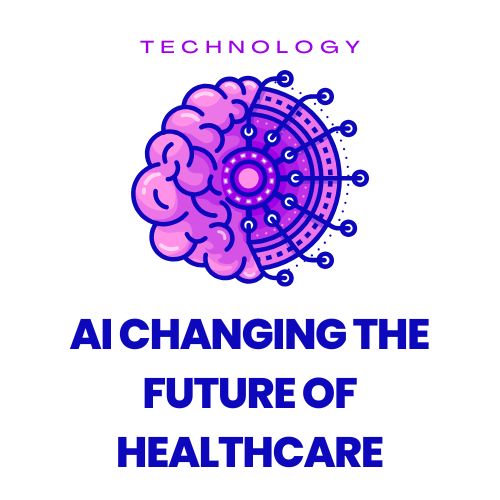Most of us don’t really think about healthcare until we have to. Maybe we get sick, a loved one needs surgery, or we’re dealing with something long-term like diabetes or anxiety. Whatever the reason, we want care that’s quick, accurate, and makes us feel understood.
And that’s where Artificial Intelligence (AI) is starting to change everything quietly, but powerfully.
This isn’t just about robots or sci-fi tech. It’s about real people getting better care, faster help, and more personalized support than ever before.
Your Doctor, Now with a Super Assistant
Imagine your doctor being able to instantly scan through your full medical history, compare it with millions of other cases, and come up with the best treatment plan all within minutes. That’s what AI can do.
It’s not replacing your doctor, though. Think of it more like your doctor getting a super-smart assistant who never sleeps, doesn’t forget anything, and can spot patterns that even the best-trained human eye might miss.
That means less guesswork, fewer unnecessary tests, and care that actually fits you your body, your history, your needs.
Finding Illness Before You Even Know You’re Sick
This is one of the most amazing parts: AI is getting so good at spotting the early warning signs of disease like cancer or heart conditions that it can sometimes catch them before you feel anything is wrong.
For example, AI tools can now read X-rays, MRIs, and scans more accurately than many human doctors. Not because doctors aren’t great they are! but because machines can scan thousands of images in seconds and highlight even the tiniest red flags.
For you and me, that could mean catching cancer early enough to fully treat it or even avoid it entirely.
A Friend in Your Pocket
Not everyone has a doctor they can easily reach. That’s where AI-powered health chatbots and apps come in. These aren’t the annoying bots you yell “TALK TO A HUMAN” at they’re getting smarter, more helpful, and even comforting.
They can remind you to take your medicine, help you track your symptoms, answer basic health questions, or guide you when you’re unsure if you need to see a doctor. For someone living alone, or far from a clinic, this could be a game-changer.
And let’s be honest sometimes it’s easier to open up to a screen than a stranger in a white coat.
Real Help for Mental Health
Mental health is personal. It’s tough. And not everyone has access to therapy or feels comfortable asking for it.
AI is opening doors here too. Apps like Woebot and Wysa are designed to talk you through tough moments using proven therapy techniques in a friendly, judgment-free way. They’re not therapists, but they can help calm your anxiety at 2 AM, or keep you on track between sessions.
These apps can even notice patterns in your mood and suggest when you might need extra support quietly, gently, and privately.
Saving Time, Money and Lives
We’ve all heard how expensive and slow drug development is. AI is helping scientists design and test new medicines faster than ever. During COVID-19, AI tools helped identify possible treatments and vaccines much quicker than traditional methods alone.
That speed doesn’t just save money it saves lives. Imagine if cures for major diseases came out in years, not decades.
Your Watch Is Watching Out for You
If you wear a smartwatch or fitness band, you’ve already got AI keeping an eye on your health literally.
These devices can track your sleep, heart rate, steps, oxygen levels, and more. If something seems off, some can even alert your doctor or emergency contact. For people with conditions like heart disease or epilepsy, this can mean getting help before it’s too late.
But It’s Not All Perfect Yet
Let’s be honest: AI still has some growing up to do. One big concern is privacy. Your medical data is deeply personal, and it needs to be handled with care. AI companies and hospitals must follow strict rules to keep your information safe and secure.
Another challenge? Making sure AI works for everyone. If the data it’s trained on mostly comes from certain groups (like people in big cities or wealthier countries), it might not work as well for others. We need to make sure healthcare AI is fair, inclusive, and doesn’t leave anyone behind.
So… Will AI Replace Doctors?
Short answer: no.
Briefly: AI is here to support healthcare workers not to take their place. It doesn’t have empathy. It can’t hold your hand or reassure you when you’re scared. It doesn’t know your story the way a human does.
But it can give your doctor more time to focus on you not paperwork. It can help nurses monitor more patients at once. It can catch things we might otherwise miss.
In other words, AI can make healthcare more human not less.
The Bottom Line
AI is changing the future of healthcare, yes but more importantly, it’s changing it for people. For patients. For families. For all of us.
Whether it’s helping a doctor make a better decision, reminding you to take your meds, or detecting a disease early AI isn’t just about data. It’s about hope. It’s about access. It’s about giving us all a better shot at living longer, healthier lives.
And that? That’s something worth getting excited about.
